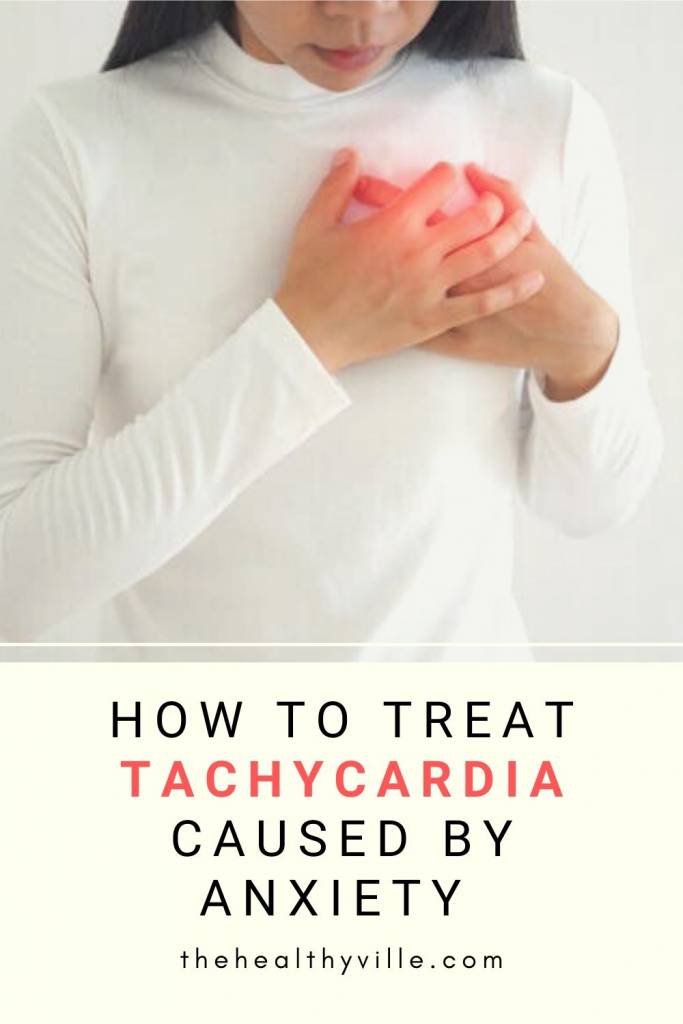How to treat tachycardia that has been triggered by anxiety, stress and emotions? There are some tips that you could use to control your heart rate.
Anxiety tachycardia is a sign that emotions are not being managed properly. More than a serious health problem in itself, it constitutes a wake-up call.
Anxiety tachycardia is a not uncommon condition in medical consultations. It is because modern lifestyles favor stress, which leads to states of anxiety, causing a series of physical and psychological problems.
In principle, anxiety tachycardia is not considered a serious health problem and does not usually have major consequences. However, anxiety itself can become chronic and become a risk factor for more complicated pathologies.
Anxiety tachycardia usually lasts only a few minutes and then goes away. Despite this, it leads one to think that it is a heart attack or a dangerous condition; therefore, it is important to learn to recognize and manage it when it occurs.
Anxiety and heart health
People with anxiety are more likely to develop heart disease in the long term. Anxiety is normal when it occurs in response to a stimulus that involves risks or dangers. Almost all of us have experienced one of these episodes throughout our lives.
Something else happens when anxiety is experienced continuously, without a reasonable cause for it. Anxiety disorder is present if symptoms are experienced for more than six months. It is estimated that between 5 and 11% of the population suffers from this problem.
Chronic anxiety stresses the heart and can weaken the cardiovascular system in the long term. In severe cases, it could lead to a heart attack or stroke. This is so because hormones and substances released in states of stress increase blood pressure, for example, or increase vasoconstriction.
Tachycardia
Tachycardia is an increase in heart rate, which causes the heart to beat at a faster rate than normal. In a healthy person who is at rest, there are between 60 and 100 beats per minute; in someone with tachycardia, the beats exceed 100 per minute.
There are several types of tachycardias, depending on the area of the heart where they originate. They are classified into two main groups:
- Atrial tachycardia: Originates in the upper chambers of the heart, called the atria.
- Ventricular tachycardia: Starts in the lower chambers of the heart, called ventricles.
Anxiety tachycardia is common, but it is not the only cause of the increased heart rate. It can be due to heart disease, hypertension, diabetes, sleep apnea, thyroid problems, anemia or consumption of some substances. Therefore, it is always advisable to consult the doctor.
The connection to anxiety
If the heart rate is too high, the heart cannot effectively pump the oxygenated blood to the rest of the body. Under these circumstances, other symptoms may occur, such as palpitations, shortness of breath, dizziness and dizziness, tiredness, weakness, chest pain, and fainting.
Anxiety, on the other hand, has as its main sign the state of nervousness, restlessness or agitation. There is a feeling of imminent danger or that something very bad is going to happen. Breathing accelerates, there is trembling, sweating, tiredness and weakness.
Other less obvious symptoms are gastrointestinal problems and difficulty falling asleep. A person with chronic anxiety feels worried and cannot remove threatening thoughts from their mind. Anxiety generates physiological changes and is a risk factor for various pathologies.
How to treat tachycardia caused by anxiety?
Anxiety tachycardia is very frequent and does not disappear until emotions are under control. If this has not been achieved, it is advisable, first of all, to understand that this increase in heart rate is the result of anxiety.
In moments like these, it is best to find a resting position, and then breathe slowly and deeply for a few minutes. Likewise, try to evoke some pleasant image, such as a calm landscape, a friendly episode or a motivating person.
Read more: Stop A Tachycardia Attack Naturally And In A Matter Of Minutes Using This!
After a short time, the heart will regain its normal rhythm. It is advisable to introduce magnesium in the diet, reduce the consumption of caffeine, alcohol and tobacco. Exercising regularly is one of the best antidotes to anxiety, as well as a powerful cardiovascular protector.
Don’t forget to SHARE how to treat tachycardia with your friends and family on your social networks!

